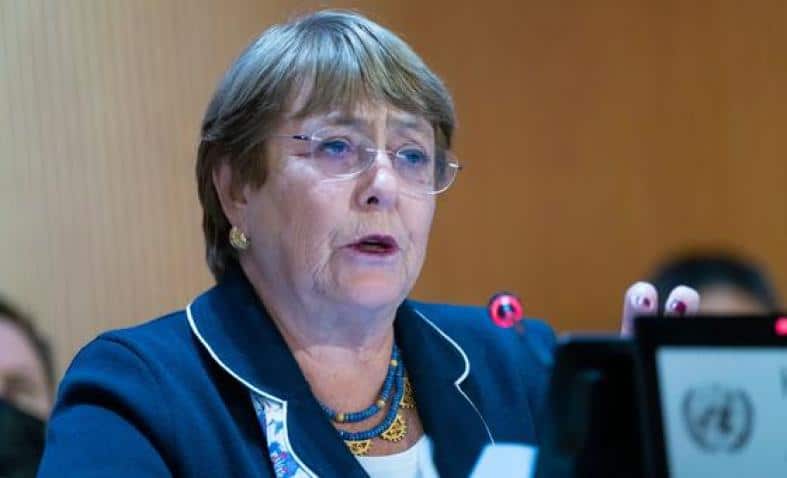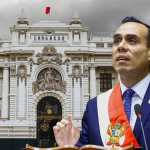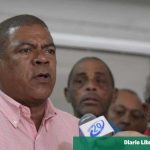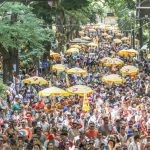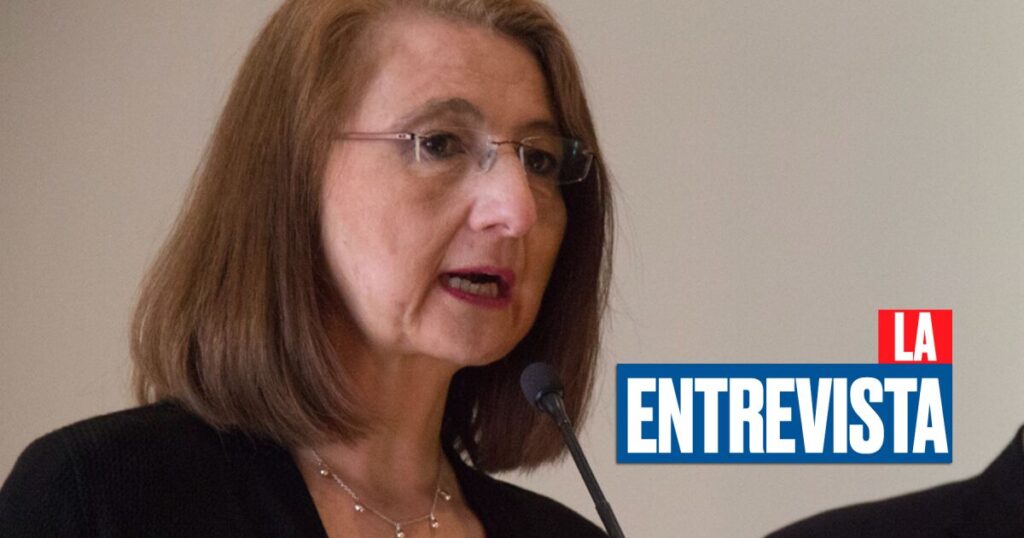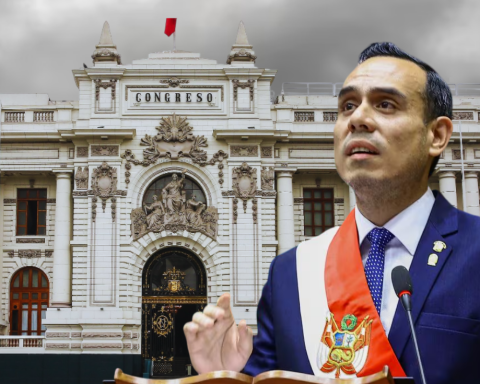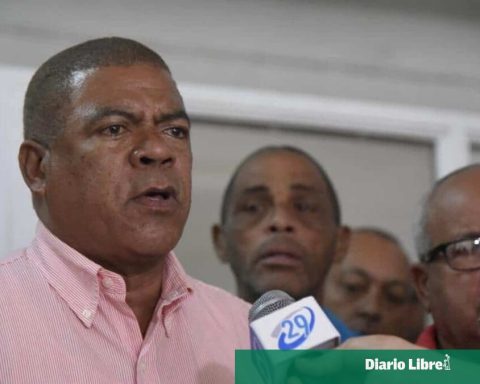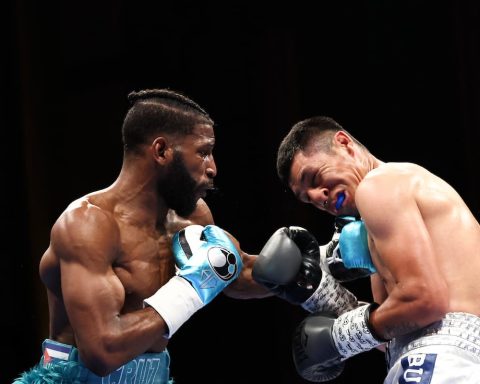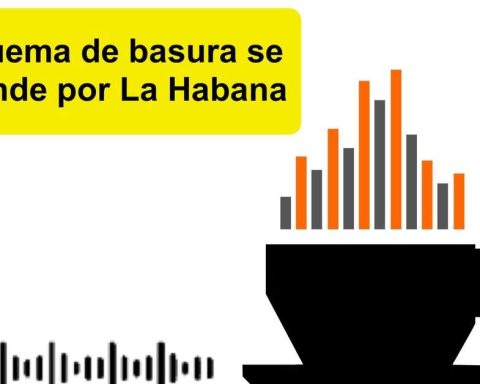The UN High Commissioner for Human Rights, Michelle Bachelet, expressed her concern before the Human Rights Council. H H. of the United Nations, because the regime of Daniel Ortega and Rosario Murillo continues “without guaranteeing” accountability for the “serious” human rights violations committed in Nicaragua, since April 2018. At the same time, he suggested “the possibility of adopting additional measures” to correct the situation.
“Accountability is at the core of the rule of law. I am concerned that accountability for the human rights violations committed since April 2018 in Nicaragua continues to not be guaranteed,” said Bachelet, during the presentation of a report on Nicaragua. before the council.
He regretted that the Nicaraguan Government continues not to comply with the recommendations made to it by the Office of the UN High Commissioner for Human Rights (Oacnudh), in order to overcome the serious crisis of human, civil and political rights.
The former Chilean president highlighted the importance of the UN Council “continuing to monitor the human rights situation in Nicaragua,” and considering “the possibility of adopting additional measures to strengthen accountability for serious human rights violations” that continue to be committed in the country.
Arrests, trials and punitive laws
The report details that arrests, criminalizations, and persecution against opponents, journalists, businessmen, and human rights defenders continue to be recorded in Nicaragua. “At least 43 people continue to be detained in the context of the 2021 elections.”
The high commissioner lamented “the death in detention of Hugo Torres, a prominent opposition leader who was arrested before the elections.”
In addition, he denounced that several of the people who were detained have suffered “deteriorating health in recent months” and that “at least 29 of these continue to be held in the Evaristo Vásquez Police Complex, in violation of the guarantees of due process and presumably in inhuman conditions.”
“We note with concern the resumption of trials against some of these men and women, during the past month, and the harsh prison sentences of at least 84 people, without applying due process,” Bachelet said.
He demanded that “urgent measures be taken to ensure their prompt release and guarantee the mental and physical integrity of the people arbitrarily detained, including granting access to my Office to visit them.”
The Oacnudh report indicates that, between January and December 2021, the harassment of 20 women and six men was recorded; the arrest of at least four human rights defenders; and some 40 cases of intimidation, threats, criminalization, and smear campaigns by state officials.
In this sense, Bachelet urged the Nicaraguan authorities “to cease, publicly condemn and punish any attack or harassment against political activists, journalists and human rights defenders.”
Punitive laws and NGO cancellations
The Oacnudh document also records the cancellation of the legal status of several institutions and civil society organizations, ordered by the regime in the first two months of 2022, and highlights that 12 universities and 26 NGOs were canceled by the National Assembly, ” without the possibility that their representatives could exercise the right to defense.”
Advocates point out that in 2021 the same practice of cancellations occurred, leaving 54 non-profit organizations prohibited from continuing to work.
In this context, the High Commissioner “strongly urged Nicaragua to repeal the approved laws, which unduly restrict civic and democratic space, in particular the Special Cybercrime Law, 1042; Law 1040 of Foreign Agents; and Law 1055 for the Defense of Independence, Sovereignty and Self-Determination for Peace”.
It recommended the “harmonization of criminal and electoral legislation in line with international human rights norms and standards.”
More than 144,000 Nicaraguans left the country in 2021
The former president warned that “the fear of repressive action by the authorities, in response to the exercise of fundamental freedoms, is profoundly detrimental to the human rights of Nicaraguans,” and highlighted that the number of asylum seekers in 2021 was the highest high since 2018, with at least 144,000 citizens. “Nicaraguans continue to search for dignified lives and security outside of their country.”
He warned, ahead of the municipal elections scheduled for November 2022, about the urgency for the Government to take measures to restore a “credible, fair and transparent electoral process.”
“All Nicaraguans must be able to freely and fully exercise their civil and political rights regardless of their political affiliation,” he said.
The high commissioner of DD. H H. urged the Government to “initiate a national dialogue, as offered by President Daniel Ortega in 2021, that is inclusive from all points of view and that aims to guarantee a peaceful and democratic solution to the political, social and human rights crisis that continues affecting the country.”
He also encouraged the authorities to “prepare a roadmap of clear commitments, based on good faith and human rights norms and standards, and guarantee that the dialogue process is observed by international and impartial guarantors,” for which his Office said to be ready and available to accompany the process.
“Granting access to the country to our personnel and to the holders of mandates and special procedures would build an important gesture of openness and cooperation with the United Nations system,” he recommended.
Regime qualifies as “aggressions”
After Bachelet’s presentation, Nicaraguan Attorney General Wendy Carolina Morales Urbina stressed that the UN Council makes “different evaluations” of human rights situations, and described the reports and updates on Nicaragua as “aggressions.”
“Their objective is to continue disqualifying and denigrating our authorities and institutions, based on false information, with the aim of interfering in our affairs, disrespecting our sovereignty and independence, and echoing the interventionist policy of the Government of the United States and some European countries,” Morales said.
The attorney demanded that “this forum speaks out in defense of the human rights of Nicaraguans so that the sanctions against our people cease”.
However, the official did not clarify that international sanctions have been directed against senior officials of the regime and institutions, accused of participating in the repression against Nicaraguans since April 2018.
Victims confirm violations
International DD organizations. H H. gave their speeches to relatives of political prisoners and victims of government repression and human rights defenders from Nicaragua who reaffirmed the violations of the human rights of Nicaraguans.
Josefa Meza, mother of Jonathan Morazán Meza, a university student murdered on May 30, 2018, in her capacity as representative of the Mothers of April Association, which brings together mothers and relatives of the victims murdered since April 2018, denounced that her son is a of the 355 victims executed by military, police and paramilitary forces of the Ortega Murillo regime.
He also denounced that for “seeking justice” the relatives of the victims have suffered “a smear campaign by the Government”, and “many of us have had to go into exile to save our lives”.
“I am here before this Human Rights Council bringing the cry of the victims, so that they express their firm support for the establishment of a mechanism that investigates and preserves the evidence of serious human rights violations and identifies perpetrators, in order to solve the bases for a justice process that guarantees our right of access to justice, truth, and reparation,” Meza said.
Julio Sandino, son of political prisoner Violeta Granera, referred to the “serious” human rights violations to which political prisoners are subjected, and explained that his mother, 70 years old and with a series of chronic health problems of her own her age, “she has been locked up in a small cell for more than eight months, sleeping on a concrete bed, where the lightbulb does not turn off 24 hours a day and does not let her rest, and due to poor nutrition she has lost part of her dentures and has lost more than 30 pounds.”
“We call on the Human Rights Council to take action on the matter. We do not want to continue seeing more people die, I do not want to see my mother die, “she said.
?Julio Sandino son of political prisoner Violeta Granera @VioletaG
He asks the Member States of the Human Rights Council to “take action on the matter” because Nicaraguans do not want to see more people die “I do not want to see my mother die,” he said. pic.twitter.com/oK9PaSyvoZ— Cenidh (@cenidh) March 7, 2022
The president of the Nicaraguan Center for Human Rights (Cenidh), Vilma Núñez, denounced the impunity of almost four years of extrajudicial executions, arbitrary detentions and other serious crimes carried out by the Ortega-Murillo regime.
“Despite the efforts of the UN and the region to improve the crisis, the situation is worsening in Nicaragua due to the absolute impunity in serious human rights violations and the lack of will of the national authorities to remedy them,” he stressed.
He also reiterated the organizations’ call for the member states of the Human Rights Council “to renew the resolution on Nicaragua and adopt a mechanism for the investigation, preservation of evidence, and accountability for the serious violations that have been committed since 2018.” ”.
